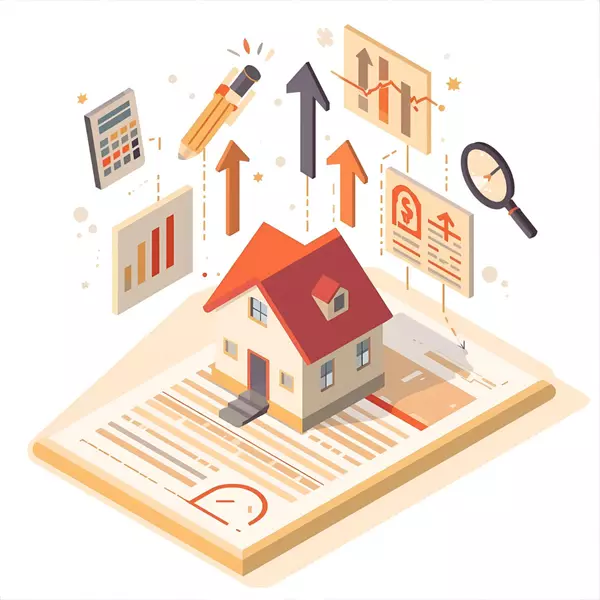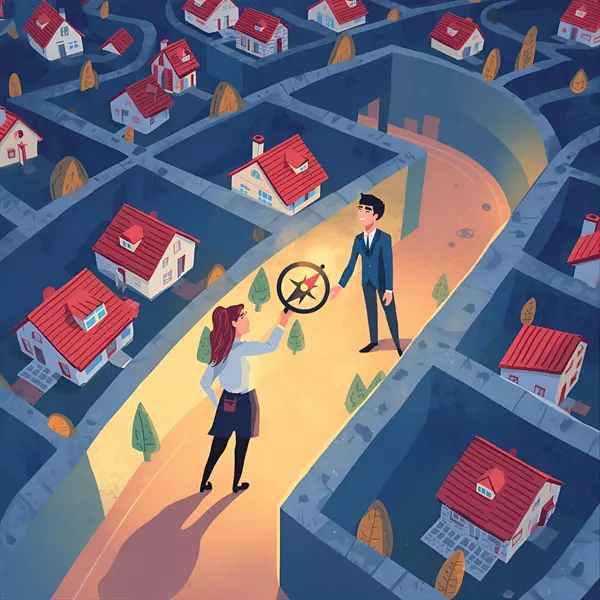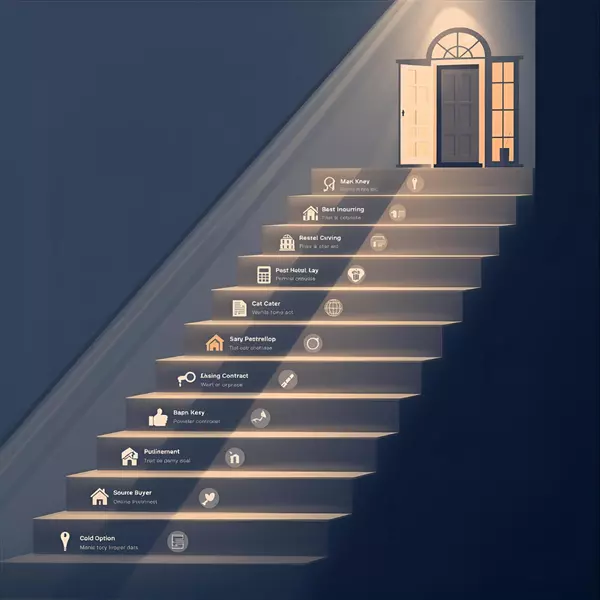How to Avoid Overpaying for a Home
How to Avoid Overpaying for a Home 🏡💰
Introduction: Make a Smart Home Purchase Without Overpaying
Buying a home is one of the biggest financial decisions you'll ever make. But in a competitive market, it's easy to get caught up in bidding wars and emotional decisions that lead to overpaying.
The good news? There are proven strategies to help you stay on budget, negotiate effectively, and make a confident home purchase without overpaying.
In this guide, we’ll break down why buyers overpay, how to avoid it, and key negotiation strategies that could save you thousands of dollars. Let’s dive in! 🚀
1. Why Do Buyers Overpay?
Many buyers spend more than they should due to emotional decisions or lack of market knowledge. Here are the biggest reasons:
1️⃣ Emotional Attachment
✅ Falling in love with a home can cloud your judgment.
✅ You start thinking “I must have this house at any cost.”
✅ Overpaying because of emotional attachment hurts your long-term financial goals.
📌 Pro Tip: Stay focused on your must-have features and budget—not just emotions!
2️⃣ Bidding Wars
✅ In competitive markets, multiple buyers compete for the same home.
✅ A home can sell far above asking price due to multiple offers.
✅ Example: A home in Saskatoon’s sought-after neighborhood received 10 offers, pushing the price $30,000 over asking!
📌 Pro Tip: Set a firm walkaway price before getting into bidding wars.
3️⃣ Lack of Market Knowledge
✅ Not understanding local market trends can lead to overpaying.
✅ Some homes are overpriced from the start, but buyers don’t always recognize it.
📌 Pro Tip: Work with an experienced real estate agent to get accurate pricing data and avoid overpaying.
2. How to Avoid Overpaying for a Home
1️⃣ Know Your Budget
✅ Get pre-approved for a mortgage so you know your maximum price.
✅ Factor in all homeownership costs (taxes, maintenance, insurance, etc.).
✅ Stick to your budget—even if you’re tempted to stretch it.
📌 Pro Tip: Don't let a lender approve you for more than you're comfortable paying—your budget should be based on what works for your lifestyle!
2️⃣ Research Market Trends
✅ Analyze recent home sales in your desired area.
✅ Look at price trends to see if homes are selling above or below asking price.
✅ Use resources like the Canadian Real Estate Association’s market reports.
📌 Example: Buyers who track the market know when to negotiate and when to walk away.
3️⃣ Set a Firm Walkaway Price
✅ Decide on your maximum offer before negotiations begin.
✅ Avoid getting caught in emotional bidding wars.
📌 Pro Tip: If a home goes above your walkaway price, move on—the right home is out there!
4️⃣ Work with an Experienced Real Estate Agent
✅ Agents have access to off-market deals, market data, and negotiation tactics.
✅ They can spot overpriced homes and help structure a smart offer.
✅ Example: I help my clients identify fair offers in Saskatoon and avoid overpaying.
📌 Pro Tip: A skilled agent can save you thousands in negotiations!
3. Smart Negotiation Strategies
1️⃣ Don’t Rush the Process
✅ Take time to evaluate the home’s value before making an offer.
✅ The longer you take, the more leverage you have in negotiations.
📌 Pro Tip: Rushed buyers often overpay out of fear—patience can pay off!
2️⃣ Ask for Seller Concessions
✅ Negotiate for closing costs, repairs, or upgrades.
✅ Some sellers will cover costs to close the deal faster.
📌 Pro Tip: If a seller won’t budge on price, ask for extras like appliances or home warranties.
3️⃣ Be Ready to Walk Away
✅ Confidence in walking away gives you ower in negotiations.
✅ Example: A buyer in Saskatoon avoided a bidding war, walked away, and found a better home at a lower price two weeks later!
📌 Pro Tip: There’s always another home—don’t settle for a bad deal!
4. Red Flags That a Home is Overpriced
Before making an offer, watch for these signs that a home might be overpriced:
1️⃣ Overpriced Listings
✅ Homes priced significantly above market value without justification.
✅ Ask your agent for a Comparative Market Analysis (CMA).
2️⃣ Deferred Maintenance & Hidden Costs
✅ “Bargain” homes can have expensive repair issues.
✅ Example: A home priced low in Saskatoon needed $20,000 in roof repairs.
📌 Pro Tip: Get a home inspection to avoid costly surprises.
3️⃣ Pressure from Sellers or Agents
✅ Avoid being rushed into making a decision before you're ready.
📌 Pro Tip: Take your time—buying a home is a major financial decision.
5. Final Tips to Save Money When Buying a Home
1️⃣ Consider Off-Market Deals
✅ Less competition = better pricing opportunities.
2️⃣ Focus on Long-Term Value
✅ Buy in neighborhoods with strong growth and resale potential.
3️⃣ Stay Objective
✅ Treat the home purchase like a business transaction, not an emotional decision.
📌 Pro Tip: The best deals go to buyers who think strategically.
Final Thoughts: Buy Smart & Save Money
Avoiding overpaying for a home isn’t about luck—it’s about preparation, market knowledge, and smart decision-making.
By following these strategies, you can:
✅ Stay within your budget
✅ Make informed offers
✅ Buy a home that’s worth the price
📊 Want expert advice on buying a home without overpaying?
I can help you:
✔ Analyze the market & find fair home prices
✔ Negotiate smartly & avoid bad deals
✔ Find hidden opportunities & off-market properties
📞 Call me, Jack Bouvier, at (306) 370-6179 or check out the links below!
Let’s find your dream home without breaking the bank!
Categories
Recent Posts










GET MORE INFORMATION



